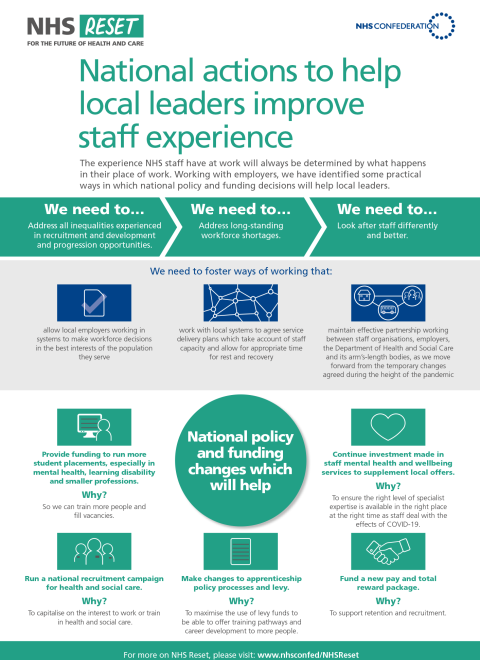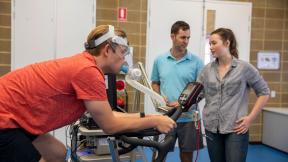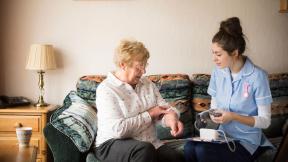One of the most striking aspects of the system response to COVID-19 has been the way in which our leaders, clinicians and partners from all sectors have worked in new ways to discuss, develop and deliver services in unprecedented circumstances. It is vital that we now build on this sacrifice and achievement to collectively reset the way we plan, commission and deliver health and care.
As part of NHS Reset, we are working with the AHSN Network and the Health Foundation to focus on how the health and care sector can work with staff, patients and the public to understand, translate and adapt the best of COVID-19-related innovations and initiatives into everyday practice – maintaining momentum, sharing what’s working and improving people’s care.
This collaboration will build on the knowledge, expertise and national and local reach of the three organisations to support the health and care sector to understand what changes have taken place in response to COVID-19. We will explore what clinicians, leaders and innovators believe should be retained, adapted, reinstated or stopped, and for which populations or settings. And critically, how we should collectively build on the rapid progress made to accelerate the reset and ongoing improvement of health and care planning and delivery.
Rapid innovation and learning have been at the heart of our immediate response to COVID-19. It must remain at the heart of what we do as we transition to managing its medium and long-term consequences.
Key areas of focus
This collaboration will focus on three important areas:
What‘s working well? Identifying and understanding what’s working for whom
The speed with which the health and care sector has transformed services in its early response to COVID-19 has been extraordinary. At the heart of this progress has been greater empowerment of clinicians and local leaders to adapt and develop their services. It is vitally important that this progress in implementing local service change is not lost in the rush to return to business as usual.
We need a consistent and forensic focus on identifying, analysing and showcasing the innovation that has happened in different settings as we seek to understand which changes are improvements and for whom, coupled with the honesty to accept not everything will stand up to this scrutiny.
Our work will explore the changes that have taken places in the first months of responding to COVID-19, the conditions and ways of working that have enabled innovation to thrive, and what is needed now and in coming months to sustain this. NHS and social care colleagues need to act quickly to capture the range of innovations that have taken place, gather data about their efficacy and desirability for the future, and understand what it would take to sustain and scale them.
The race to systematise service innovation: how to make the changes in practice and mindset sustainable
The roll out of new service innovations and products across the sector has been stimulated and supported by a shift in both practical support, and mindsets. Practical support has included the injection of additional finance, and reduced reporting requirements. Many have noted a mindset shift, for example in leadership permission for risk appetite, local experimentation and frontline-led change.
This emergency COVID-19 response funding, while significant, is non-recurrent, putting at risk any new ways of working and innovations that are not fully embedded into daily working practice. In parallel, the return to ‘business as usual’ risks a return to ‘mindset as usual’, narrowing the headspace, autonomy and resources our leaders and clinicians have to understand, iterate and adapt the emerging improvements in service design into routine care.
In effect, we are in a time-limited race to systematise positive service innovation and practice – with local systems and NHS and care organisations requiring, for example, proof of concept in different settings, an understanding of training and development needs, business case agreement, aligned future research priorities and adapted service strategies to ensure all is not lost. What needs to be done to embed changes and modernise how we work before the opportunity to reset how we work is lost?
A spotlight on the wider system: how to ensure the focus is retained on the integration agenda, and community, primary care and social care
While the impact of COVID-19 has been felt across the whole health and social care sector, it has also exposed the historic lack of focus, resource and support we have given to some parts of the system. Across the UK we have seen innovations created and delivered on the ward, in the community and in the care home. They are all playing a critical role in enabling rapid service change and need to be considered collectively by policymakers and system leaders as we seek to understand what resetting health and care might look like.
This means placing more emphasis on primary, community and social care settings in particular. How can we support a change in the behaviours, culture and investment in innovation and improvement in these areas? What do patients think of the new innovations driving system change? What good practice already exists that can be interwoven with traditional innovation pathways and partners to build stronger systems from the bottom up? How can having a COVID-19 innovation focus truly support the development of our integrated care systems?



































